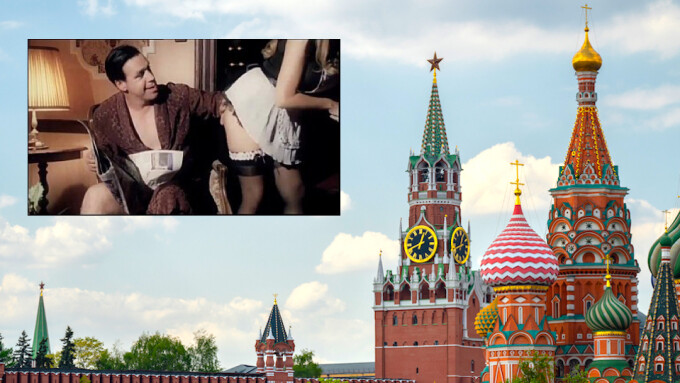MOSCOW — Months after President Vladimir Putin signed a series of sweeping anti-porn laws giving the Russian State discretionary power to regulate sexual material on the internet, a dissident leader is currently on trial for “distributing pornography” through a 2014 Facebook post featuring an explicit music video by the German band Rammstein.
The verdict in the criminal case against Andrei Borovikov — which could result in three years in prison — is due today, in a case human rights organization Amnesty International has flagged as “not the first time the Russian authorities have used an over-broad definition of ‘pornography’ as a pretext for locking up their critics.”
Borovikov is a supporter of jailed opposition leader Aleksei Navalny.
Putin closed 2020 by signing a comprehensive censorship law that would allow for sweeping actions under supposed “moral grounds,” but there were already laws in the books that allowed police to selectively charge Boronikov.
Like U.S. crusaders against Section 230 protections and the very existence of porn, the Russian government’s internet regulatory agency, Roskomnadzor, claims that the goal of the government’s censorship of sexual content is to “save the children.”
But the discretionary application of these censorship laws against political opponents has prompted Amnesty International to raise the alarm.
A Murky Case Involving a Decade-Old Music Video
Borovikov is the former coordinator of Aleksei Navalny’s regional headquarters in Arkhangelsk, in northwestern Russia.
“In 2014,” Amnesty International explained, “he shared the music video for Rammstein’s song ‘Pussy’ on the Russian social network VKontakte. More than six years later in September 2020, the authorities charged him with ‘production and distribution of pornography.’ The prosecution has requested a three-year sentence in a high-security penal colony if Andrei Borovikov is found guilty by the Lomonosovsky District Court.”
Borikov’s 2014 post featuring Rammstein’s 2009 “Pussy” music video — one of several sexually explicit productions by the German industrial metal band with a massive, loyal Eastern European following — “came to the authorities’ attention six months ago, when a former volunteer at Borikov’s office informed the police,” Amnesty International revealed.
“The volunteer had secretly recorded his conversation with Borovikov about the video, during which Borovikov had deleted it. Nonetheless, the authorities initiated a criminal investigation, which suggests the volunteer was employed as an agent provocateur to help fabricate the case.”
The prosecution claimed the video was seen by “not fewer than two people” and ordered “a sexological and cultural examination” of the clip where government experts found it to be of “pornographic nature” and “not containing artistic value.”
In the United States, free speech and sex worker activists have warned about a similarly arbitrary use of "anti-porn" laws and absurdist government evaluations of sexual content if the legislation proposed by War on Porn crusaders were to be enacted.
Main Image: The Kremlin and a still from the Rammstein video for "Pussy" (Source: Shutterstock/Rammstein).







